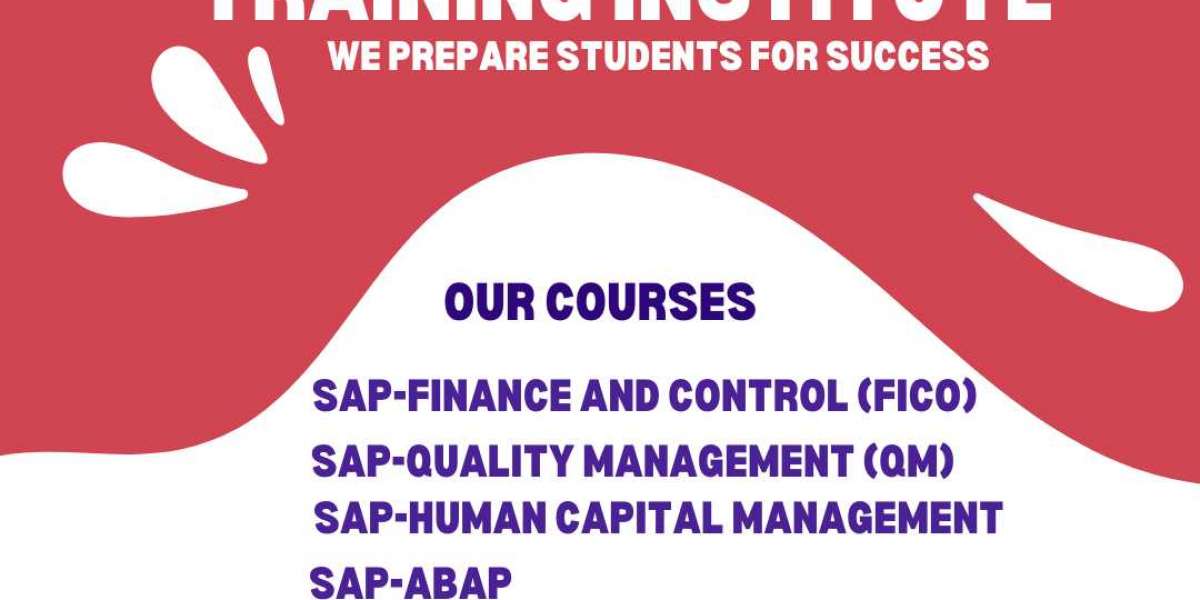In the realm of enterprise resource planning (ERP) systems, SAP FI (Financial Accounting) stands out as a cornerstone module for managing financial transactions, reporting, and analysis within organizations. As businesses increasingly recognize the significance of efficient financial management, the demand for professionals proficient in SAP FI continues to rise. Through comprehensive SAP courses offered by top-notch institutes, individuals can unlock a plethora of advantages that SAP FI brings to the table. Let's delve into the myriad benefits of leveraging SAP FI in financial accounting.
- Streamlined Financial Processes: SAP FI facilitates the automation of core accounting processes, including accounts payable, accounts receivable, general ledger accounting, asset accounting, and bank accounting. By centralizing these functions within a single integrated system, organizations can streamline their financial operations, minimize manual errors, and enhance overall efficiency. SAP classes delve into the intricacies of configuring and optimizing these processes, empowering professionals to leverage SAP FI effectively.
Enquiry Now: https://connectingdotserp.in/#enquiry
For Demo Call Us: 9004002958 |9004001938
- Real-Time Reporting: One of the standout features of SAP FI is its capability to generate real-time financial reports. Through seamless integration with other SAP modules such as Controlling (CO) and Materials Management (MM), SAP FI provides up-to-date insights into the financial health of an organization. Professionals trained in the best SAP courses gain expertise in creating custom reports, dashboards, and analytics, enabling stakeholders to make informed decisions promptly.
- Global Compliance and Standards: In today's interconnected business landscape, adhering to regulatory compliance and financial standards is paramount. SAP FI incorporates functionalities that support various international accounting principles, tax regulations, and reporting standards. Whether it's GAAP, IFRS, or local statutory requirements, SAP FI offers robust features to ensure compliance, thereby mitigating legal risks and fostering trust among stakeholders.
- Enhanced Cost Control and Analysis: Effective cost management is essential for optimizing profitability and driving sustainable growth. SAP FI equips organizations with advanced cost control mechanisms, enabling them to track expenses, allocate costs accurately, and analyze spending patterns comprehensively. With in-depth knowledge gained from SAP institute training, professionals can harness SAP FI's cost accounting functionalities to identify cost-saving opportunities, allocate resources efficiently, and maximize profitability.
- Improved Decision-Making: Timely and data-driven decision-making is a cornerstone of modern business strategy. SAP FI empowers organizations with robust financial data management capabilities, enabling stakeholders to access accurate information whenever needed. By attending SAP classes, professionals acquire proficiency in data extraction, analysis, and visualization using tools like SAP S/4HANA Finance. This empowers decision-makers to evaluate performance metrics, forecast future trends, and devise strategies with confidence.
Visit Us: https://connectingdotserp.in/#enquiry
For Demo Call Us: 9004002958 |9004001938
- Efficient Cash Management: Effective cash flow management is critical for maintaining liquidity and sustaining business operations. SAP FI offers comprehensive functionalities for managing cash flow, liquidity, and treasury operations effectively. Professionals undergoing SAP training gain insights into cash management processes such as cash positioning, forecasting, and bank relationship management. By optimizing cash management practices, organizations can minimize financial risks and seize growth opportunities proactively.
- Integrated Business Processes: SAP FI is designed to integrate seamlessly with other SAP modules, enabling end-to-end business process automation. Whether it's procurement, sales, production, or human resources, SAP FI ensures data consistency and transparency across various functional areas. Professionals completing the best SAP course understand the interdependencies between SAP modules, facilitating holistic business process optimization and driving operational excellence.
- Scalability and Flexibility: As organizations evolve and expand, scalability becomes a key consideration in selecting financial management solutions. SAP FI offers scalability to accommodate growing business needs, whether it's an increase in transaction volume, expansion into new markets, or diversification of business operations. Moreover, SAP FI's modular architecture provides flexibility to tailor the system according to specific business requirements, ensuring adaptability in dynamic environments.
In conclusion, the advantages of financial accounting in SAP FI are multifaceted, ranging from streamlined processes and real-time reporting to global compliance and enhanced decision-making. By investing in SAP courses offered by reputable institutes, professionals can acquire the skills and knowledge needed to leverage SAP FI effectively, driving value creation and innovation within their organizations. As SAP continues to evolve with advancements like SAP S/4HANA Finance, staying abreast of the latest developments through continuous learning is essential for unlocking the full potential of SAP FI in financial management.








